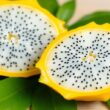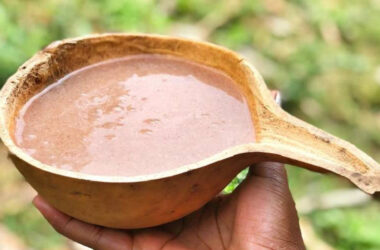You’re not alone; have you ever studied the ingredients in your skincare products and wondered, “What the heck is this stuff?” More people are utilizing herbs to protect their skin from toxins. It’s similar to a skincare revolution in that it’s all about getting back to basics with natural ingredients. Whether you have acne, dry skin, or simply want to shine, there is a plant for you. Let’s look at the top ten herbs for treating your skin with the love it deserves.
Key Take Away
- Great for lowering inflammation and lightening skin is turmeric.
- Neem tones the skin and fights acne.
- Aloe vera is perfect for all skin types, as it comforts and moisturizes.
- Manjistha purifies the blood, resulting in improved skin.
- Sandalwood tones skin by cooling and soothing.
1. Turmeric.
Often called the “golden spice,” turmeric is a mainstay of many skincare products. Derived from the root of the Curcuma longa plant, this vivid yellow powder is well known for improving skin health. Its secret is curcumin, a chemical hailed for its anti-inflammatory and antioxidant qualities.
Purposes of Turmeric for Skin
- Turmeric’s antibacterial qualities are well-known, and they can help lower the germs causing acne. It also lessens redness and hence calms the skin.
- Regular usage of turmeric can assist in fading dark spots and hyperpigmentation, giving your skin a brilliant glow.
- The antioxidants in turmeric guard the skin from free radical damage, therefore preventing early aging.
How to Use Turmeric in Your Skincare Routine
- You can make simple face masks by mixing turmeric powder with yogurt or honey. Leave it on for ten to fifteen minutes, then rinse.
- Combine turmeric with rose water for a revitalizing toner that might enhance the pH balance of your skin.
- Apply straight on dark patches or blemishes a paste made from turmeric and water.
More than simply a spice, turmeric is a naturally occurring cure used for millennia to encourage beautiful, healthy skin. Whether you need to brighten your skin or combat acne, turmeric could be the solution you’ve been seeking.
Precautions
Although turmeric is usually safe for topical usage, first you should undergo a patch test to be sure you won’t have an adverse reaction. Additionally, be careful since turmeric can momentarily discolor skin and clothes.
Consider incorporating turmeric into your daily skincare routine to reap its numerous benefits for skin health, such as controlling psoriasis and reducing sun damage.
2: Neutral Neem
The scene features fresh neem leaves submerged under water drops against a hazy backdrop.
Often praised as the “wonder herb” in Ayurveda, neem is rather strong for skin care. Its remarkable antibacterial and antifungal qualities make it a go-to treatment for bothersome skin conditions, including eczema and acne. Neem effectively cleanses the skin, minimizes blemishes, and promotes a bright, radiant complexion.

Neem’s advantages for skin treatment:
- Neem’s antimicrobial properties aid in clearing acne and preventing further breakouts.
- It soothes sensitive skin with its anti-inflammatory properties, thereby relieving eczema sufferers of their condition.
- Neem aids in the purging of toxins, thereby leaving your skin fresh and revitalized.
Neem is a skincare powerhouse revered for ages, not only another herb. Many beauty regimens feature it as a mainstay since it is naturally able to cure and cleanse.
How to Use Neem in Your Skincare Routine:
- Apply a few drops of neem oil to afflicted areas to control outbreaks and calm irritation.
- To do a deep cleansing mask, mix neem powder with water or yogurt.
- To do an all-over skin detox, toss neem leaves in your bath.
3: Aloe Vera
Aloe Vera is a reliable companion. Regarding skin relaxation and hydration, this herb is a powerhouse. Do you know that sometimes moisturizers can appear greasy and heavy? Aloe Vera is, then, the reverse. Perfect for all skin types, it hydrates your skin without causing an oily sensation.Aloe vera is excellent for purposes beyond hydration. Aloe Vera appears to be a minor miracle worker for your skin.
Aloe Vera advantages for skin treatment:
- Aloe vera smoothes out acne scars, thereby improving the appearance of your skin.
- Have you ever spent too much time in the sun and ended up looking like a lobster? Soothe sunburns. Aloe vera can heal and cool your skin.
- Its anti-inflammatory properties aid in calming agitated skin.
Use aloe vera gel regularly to maintain radiant, silky, flexible skin. Every usage feels like a little spa treatment.
It extends beyond just skin care.
Beyond that, aloe vera provides advantages Aloe vera is also a versatile addition to your wellness regimen due to its well-known ability to support gastrointestinal health. If you haven’t tried Aloe Vera yet, what are you waiting for? Try it and notice how different it makes for your complexion.
4: Manjismatha
Manjistha is considered a skincare treasure. People revere this plant for its ability to cleanse the blood, thereby aiding in skin clarity. Manjistha is fantastic for everyone coping with tough skin problems, including eczema or acne. Eliminating toxins can rejuvenate your skin.
The advantages of Manjistha
- It aids in cleansing the blood, thereby fostering improved skin.
- Anti-inflammatory agents reduce redness and calm sensitive skin.
- Antibacterial: battles bacteria causing acne.
How to Use Manjistha:
- To make a paste, combine manjistha powder with rose water. Apply it to your face; keep it on for fifteen minutes; then rinse.
- Prepare a cup of manjistha tea to experience its benefits internally.
- If you want a quick and simple solution, think about grabbing manjistha pills.
Manjistha enhances liver function and boosts circulation, thereby promoting your overall health rather than just improving the appearance of your skin. This basic yet effective addition will greatly benefit your skincare regimen.
5. Sandalwood
Sandalwood is more than just a pleasant fragrance; it is a skin superpower. Sandalwood’s cooling and relaxing qualities have led to its long-standing use in skincare. It effectively reduces acne and eases inflammation. Sandalwood leaves your skin appearing fresh and invigorated while helping balance out your tone.Combining sandalwood powder with water or rose water makes a face mask that will revitalize your skin.
Advantages of Sandalwood
- Sandalwood’s natural antibacterial qualities help battle the germs causing acne.
- The cooling action of this aids in the perfect healing of sunburned skin.
- Regular use can help lessen symptoms of aging, including dry skin and wrinkles.
How To Use Sandalwood
- Combining sandalwood powder with rose water, dab it on your face. Set it on for fifteen minutes, then rinse.
- Mix a little sandalwood powder with water to create a paste, then dab it on pimples.
- For additional advantages, toss a little sandalwood powder into your everyday face cleanser.
Sandalwood is also a powerful anti-aging agent since it helps to reduce free radical damage. If you’re looking to combat acne, exfoliate your skin, and reduce the signs of aging, sandalwood powder could be your go-to solution.
6. Gettingu Kola
When it comes to skincare, gotu kola—sometimes known as Brahmi—is a powerhouse. People highly value the anti-aging properties of this herb. Its capacity to increase collagen generation—which is essential for preserving skin elasticity—is where the magic resides. This results in fewer fine lines and wrinkles, thereby smoothing your skin and giving it a more youthful look.
Advantages of Gotu Kola
- Boosts Skin Elasticity: Gotu Kola stimulates collagen, so maintaining the firmness and flexibility of your skin.
- Encourages Wound Healing: It can hasten the healing process for minor burns and cuts, therefore lowering the possibility of scars.
- Regular use can help scars and blemishes diminish with time.
How to Use Gotu Kola in Your Skincare Routine:
- For direct skin application, search for lotions or balms including Gotu Kola.
- Herbal Teas: You can also use gotu kola as a tea to improve your overall skin condition from the inside out.
- For individuals who would want a more concentrated dosage, capsules or pills are available.
Gotu Kola is about confidence in your own skin rather than only attractiveness. Accept the natural advantages of this herb and leave your skin to tell its own narrative.
Caution
Although Gotu Kola is usually safe, before using any new skincare product, it’s advisable to undergo a patch test. Firstly, consult a healthcare practitioner if you are nursing or pregnant. Remember, natural does not necessarily mean safe for everyone. Always pay attention to your body and modify appropriately.
7. Rose.
Roses possess significant skincare benefits beyond their aesthetic appeal. Rose’s calming and revitalizing qualities can help your skin greatly.
Advantages of Rosefor Skincare
- Roses are naturally moisturizing, which helps retain moisture and maintain soft, smooth skin by locking it in.
- Rose anti-inflammatory qualities can aid in calming irritated skin and lessening redness.
- Antioxidants, which protect your skin from damage from free radicals, are abundant in roses.
Various rose forms for cosmetics
- Rose water, a mild toner, will moisturize and rejuvenate your skin.
- Rose oil: Often included in serums and lotions for their nourishing properties.
- Rosehip Seed Oil: Renowned for its capacity to smooth skin and fade scars.
Roses are a gift for your skincare regimen, not only a representation of love. Their natural ability to moisturize and calm makes them a must-have in every cosmetic toolkit.
Rose Uses in Your Skin care Routine:
- A rose water spritz can help wake up your skin first thing in the morning.
- For even more hydration, toss some rose oil drops into your moisturizer.
- At night, help your skin heal and regenerate itself by using rosehip seed oil as you sleep.
Incorporating rose into your skincare regimen not only improves the appearance of your skin but also gives it the attention it deserves.
8. Triphasella
Combining three strong fruits—amla (Indian gooseberry), bibhitaki, and haritaki—triphala is a typical Ayurvedic mix. This herbal mix is a powerhouse for skin health as well as for gastrointestinal aid. Triphala performs miracles for body detoxification, which will show on your skin.
Triphala’s benefits for skin
- Triphala aids in the body’s toxin-flushing process, thereby producing better and clearer skin.
- Combining skin rejuvenation helps skin cells glow younger.
- Regular use can enhance skin tone and texture.
How to Use Triphala for Skin
- Making a paste, mix Triphala powder with water or rosewater. Apply it to your face; keep it on for ten to fifteen minutes; then, rinse off with lukewarm water.
- Ingesting triphala supplements helps your skin internally.
- Boiling the powder in water, then cooling it, will help you create a Triphala toner for a face spray.
Regular Triphala use will clearly improve the look and condition of your skin. It acts as a natural and gentle detoxifier for your skin.
Triphala is a flexible addition to your beauty supply since it not only enhances the look of your skin but also brightens and even tones it. Whether you consume it or apply it topically, the benefits will undoubtedly manifest.
9. Licoric
The background is blurred and features fresh licorice roots and leaves.
That secret sauce for your skin is licorice root. For millennia, especially in Ayurveda, it has been the go-to in skincare.

Why is it? This is because it provides some truly remarkable benefits.
- Licorice is well-known for helping to balance out skin tone and lighten dark patches. It’s like a naturally occurring skin brightener.
- Licorice might help relax your skin if it feels somewhat agitated. Its anti-inflammatory qualities help reduce redness and aggravation.
- Sun Protection: Licorice provides some minor UV ray protection even if it won’t replace your sunscreen.
Licorice root gently yet powerfully addresses common skin problems, including redness and hyperpigmentation. It’s like adding a tiny skincare assistant to your routine.
Including licorice in your skincare regimen might revolutionize it. For its several skin advantages, use it in a serum or a face mask.
10.grade Ashwagandha
Ashwagandha, considered one of the best herbs available, helps the body manage stress. Chronic stress can damage your skin, leading to early aging indications and breakouts. Ashwagandha helps improve general skin health, balance hormones, and lower inflammation by including it in your regimen.
Ashwagandha’s advantages for skin
- Being an adaptogen, this plant helps your body more successfully control stress. Reduced stress might translate into fewer skin problems, including dullness or acne.
- Ashwagandha is a fantastic supplement to skincare for persons with sensitive or reactive skin since its natural anti-inflammatory qualities help calm irritated skin.
- Ashwagandha’s support of hormone balance may help to reduce hormonal acne and other skin issues related to hormonal imbalance.
One natural and efficient approach to getting a radiant complexion is including Ayurvedic herbs like ashwagandha into your skincare regimen. Using products with these herbs can help you to encourage glowing, healthy skin without depending on strong chemicals or synthetic components.
Try ashwagandha to help stabilize cortisol levels, which will lower stress and improve your skin condition. This is a minor yet significant addition to your daily routine.
Conclusion
These ten amazing herbs have the power to drastically alter your skincare routine. Imagine that these basic, natural components can accomplish so much—kind of crazy, right? From the age-defying gotu kola to calming aloe vera, every herb offers special advantages. And the nicest thing is you don’t have to bust the budget or stock your shelves with a ton of goods. A few deliberate additions to your regimen can enable you to get the healthy, radiant skin you have been dreaming of. Thus, why not try it? Your skin might truly appreciate the benefits!










